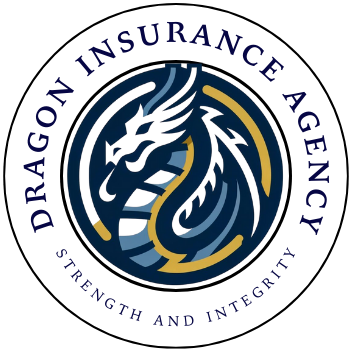Homeowner’s Insurance for Slidell
We provide comprehensive homeowners insurance coverage designed to safeguard your property. With customizable options, you’ll have peace of mind knowing your home is protected from life’s unexpected events. Get started today to explore the best solutions for your needs in Slidell.
Why Homeowners Insurance Matters in Slidell
Living in Slidell means enjoying a mix of charming neighborhoods and the natural beauty of Louisiana. However, it’s also important to prepare for potential risks, from hurricanes to everyday accidents. Homeowners insurance is your safety net, covering damages to your home and personal belongings while offering liability protection.
Key Benefits of Choosing the Right Coverage
- Protection from Natural Disasters
Slidell’s coastal location makes it vulnerable to storms and flooding. Homeowners insurance helps cover repair costs, ensuring you’re not left with overwhelming expenses after a storm. - Personal Belongings Coverage
Your policy doesn’t just cover the structure of your home. It also extends to furniture, electronics, and other valuables in case of theft, fire, or damage. - Liability Coverage for Peace of Mind
If someone is injured on your property, homeowners insurance can help cover medical expenses and legal fees, saving you from significant financial strain.
Tailored Insurance Options for Every Homeowner
Every home in Slidell is unique, and your homeowners insurance should reflect that. Whether you’re a first-time buyer or have been in your home for decades, you can choose from policies that meet your budget and coverage requirements.
Homeowners Insurance Services
We will work with you to understand your lifestyle and needs as well as your short-term and long-term objectives in order to create a customized insurance policy or package that protects your best interests.
Our personal lines of insurance include, but are not limited to:
- Flood Insurance
- Homeowners Insurance
- Condominium Unit Owners Insurance
- Renters Insurance
- Jewelry Floaters
- Secondary Residences
- Landlord Insurance
- Personal Umbrella Policies
- Vacant Property
- Builder’s Risk
- Auto Insurance
- Antique Car Insurance
- Motorcycle Insurance
- Boat, Yacht, & Watercraft Insurance
- ATV & Off-Road Insurance
- Motorhome & Travel Trailer Insurance
Lines of Personal Insurance
- Flood Insurance
- Homeowners Insurance
- Condominium Unit Owners Insurance
- Renters Insurance
- Jewelry Floaters
- Secondary Residences
- Landlord Insurance
- Personal Umbrella Policies
- Vacant Property
- Builder’s Risk
- Auto Insurance
- Antique Car Insurance
- Motorcycle Insurance
- Boat, Yacht, & Watercraft Insurance
- ATV & Off-Road Insurance
- Motorhome & Travel Trailer Insurance
Why is Flood Insurance Important?
Most homeowners insurance policies do not include flood coverage; therefore, a separate flood policy must be purchased for protection. Flood insurance is available to homeowners, renters, condo owners/renters, and commercial owners/renters. Costs vary depending on how much insurance is purchased, what it covers, and the property’s flood risk.
FEMA is in the process of a nationwide flood zone remapping project that may affect you. With the updates to flood zone maps, your property may be remapped to a higher or lower-risk zone. At Boesch Insurance, we are ready to help you prepare for possible changes resulting from flood zone remapping.
Frequently Asked Questions
Auto Insurance
What auto insurance is required in Louisiana?
Does insurance follow the car or the driver in Louisiana?
Do I need uninsured motorist coverage in Louisiana?
Is it worth getting uninsured motorist insurance?
Can someone not on your insurance drive your car?
Do I need comprehensive and collision?
Home Insurance
What is typically covered in a homeowners policy?
What damages does a typical homeowners insurance policy cover?
- Windstorms
- Hail
- Lightning strikes
- Fire
- Vandalism and theft
- Explosion
- Falling objects
- Damage caused by weight of snow or ice
What are some things not covered in homeowners insurance?
Can I get homeowners insurance on a home I don't own?
Home Insurance Deductibles – How Do They Work?
Deductibles are what you can expect to pay out of your pocket before the insurance steps in to pay for damages. Knowing about hidden deductibles in your policy will save you a lot of time, money, and frustration if anything terrible happens to your home.
What are the types of Deductibles?
- Percent-Based Deductible (%) Hurricane or Wind/Hail Deductible
Percentage-based deductible means that your deductible is a set percent of the Coverage A or dwelling coverage in the policy. (this is NOT the market value of your home, but the first line of coverage on your home insurance declarations page). In most cases, it’s between 1 and 5 percent of your home’s replacement value.So, if your policy has $200,000 of dwelling coverage for your home and you have a 2% deductible, then you would have to pay for the first $4,000 ($200,000 * 2%) of damages to your home before the insurance company starts paying. Keep in mind these % deductibles are often attached to special perils, like a Hurricane Deductible or Wind/Hail Deductible.
- Dollar Based Deductible ($)
You pay a set $ amount anytime you file a claim. The most common deductible is $1,000. However, it can be as little as $500 or as high as $10,000.
Flood Insurance
What does a flood insurance policy cover?
For the right personal insurance coverage to meet your needs, contact us today!
